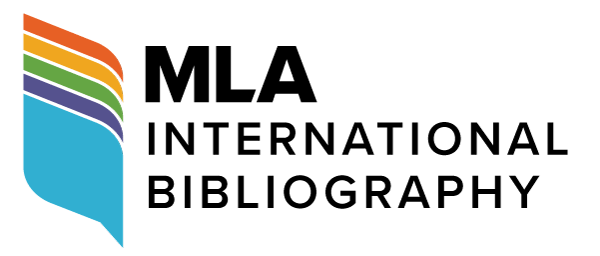Functional aspects of religious vocabulary in polish language textbooks(Hurra!!! Po polsku 1,2,3)
DOI:
https://doi.org/10.31652/2521-1307-2022-36-21-29Keywords:
general religious concepts, Catholic, cultural context, textbooks for learning the Polish language, religious vocabulary, holiday themesAbstract
Introduction. Over the last five centuries, the functioning of Polish educational literature has certainly gone through its stages of formation and development. The religious lexical element in such manuals remained an integral part of the presentation of Polish culture. In the 21st century, modern methods of foreign language teaching pay a lot of attention to the socio-cultural component, thanks to the combination of the process of in-depth study of culture (in particular, the communicative part). The article analyzes materials for learning Polish as a foreign language Hurra!!! Po polsku 1,2,3 in a new format for the presence of religious vocabulary and its functional aspects.
The purpose of the article: to single out groups of religious concepts and terms that are directly related to religion or the cultural and religious tradition of the Polish people and to characterize the concepts according to the religious context.
Methods. The main method used is the method of analyzing the presence of religious vocabulary in educational materials. The functional method is used to organize religious concepts. Discourse analysis of selected religious concepts and their translation is also applied.
The results. The article singles out groups of religious concepts and terms that are directly related to religion or the cultural and religious tradition of the Polish people. Concepts with a religious context, which are typical of the Polish cultural environment, are characterized. Groups of words belonging to Polish religious traditions and general religious concepts are singled out. The main categories of religious meanings and terms have been formed. The analysis of ambiguous religious concepts in the context of their translation and use was carried out.
Originality. The series of textbooks of the 2020-2021 edition on the subject of religious vocabulary has not yet been studied, so the material can serve practitioners and theorists as a basis for researching Polish language textbooks and their functional application in practice.
References
Брацкі А. З. Комунікативний курс польської мови для іноземців: профіль підручника та компетенції викладача і слухача. Філологічні студії. Науковий вісник Криворізького державного педагогічного університету. 2013. Вип. 9. С. 663–672. https://doi.org/10.31812/filstd.v9i1.596
Єрмак Л. О. Підручники з польської мови як іноземної у професійній сфері: аналітичний огляд. Лінгвокультурний дискурс у парадигмі професійної освіти: зб. матеріалів Міжнар. наук.-практ. конф. Київ, 5 берез. 2015 р. Київ : КНЕУ, 2015. С. 446–451.
Ковалевський Є., Кравчук А. Методика викладання польської мови. Мова і культура в полоністичній дидактиці в Україні. Київ : Інкос, 2017. С. 324.
Пиль Я. Польсько-український словник релігійних термінів. Київ : Католицький МедіаЦентр, 2012. 100 с.
Ciesielska K. Agnieszka Burkat, Agnieszka Jasińska, Hurra!!! Po Polsku 2, Prolog, Kraków 2010. Zeszyty Naukowe Uczelni Vistula. 2015. Nr 39. S. 95–98.
Dąbrowska A., Pasieka M. O czym ma milczeć cudzoziemiec. Tematy i słownictwo nieobecne w podręcznikach języka polskiego jako obcego. Język a Kultura. t. 21: Tabu w języku iw kulturze/ red. Dąbrowska A. Wrocław : Wydawnictwo Naukowe Uniwersytet Wrocławski, 2009. S. 241–257.
Gałecki Z., Kliza D. Dlaczego „pop” stał się w języku polskim wyrazem obraźliwym? Roczniki Humanistyczne. 1994. R. 42. Z. 6. S. 21–38.
Góralczyk P. Słownictwo związane z rodziną (na materiale list haseł Haliny Zgółkowej i serii podręczników Hurra!!!). Acta Universitatis Lodziensis. Kształcenie Polonistyczne Cudzoziemców. 2013. Nr 20. S. 111–118.
Imamowie. URL: https://mzr.pl/imamowie/ (дата звернення: 03.04.2023).
Kola. A. O niepełnosprawności w podręcznikach do nauczania języka polskiego jako obcego. Acta Universitatis Lodziensis. Kształcenie Polonistyczne Cudzoziemców. 2010. Nr 17. S. 507–515.
Markunas A., Uczitiel T. Terminologia kościelna. Mały słownik opisowy polsko-ukraiński i ukraińsko-polski. Poznań : Wydawnictwo Naukowe UAM, 1995. 179 s.
Olchowa G. Edukacja klimatyczna w podręcznikach do nauczania języka polskiego jako obcego dla poziomu A2. Postscriptum Polonistyczne. 2021. Nr 2 (28). S. 51–61. https://doi.org/10.31261/PS_P.2021.28.03
Paździo J. Czy podręczniki do nauczania języka polskiego jako obcego mają marginesy? Annales Universitatis Paedagogicae Cracoviensis. Studia de Cultura. 2012. Nr 4. S. 158–170.
Stankiewicz K., Żurek A. Obraz Polki/Polaka w serii podręczników do na-uczania języka polskiego jako obcego Hurra!!! Po polsku. Acta Universitatis Lodziensis.Kształcenie Polonistyczne Cudzoziemców. 2010. Nr 17. S. 495–506.
Strzelecka A. W jaki sposób i z jakiej okazji świętują podręcznikowi i prawdziwi Polacy? Negocjowanie ważności świąt. Acta Universitatis Lodziensis. Kształcenie Polonistyczne Cudzoziemców. 2014. T. 21. S. 163–175.
Szamryk K. Statystyczna analiza słownictwa potocznego w podręczniku Hurra!!! Po polsku 1. Roczniki Humanistyczne 2017. Nr 65. S. 25–41. https://doi.org/10.18290/rh.2017.65.10-2
Downloads
Published
Issue
Section
License
Copyright (c) 2023 Oleksii Pavliuk

This work is licensed under a Creative Commons Attribution 4.0 International License.








